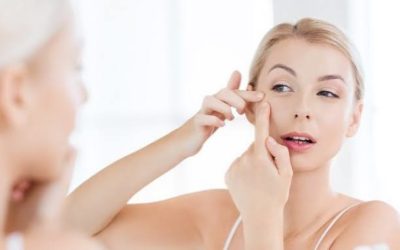
Oh no! Acne!?
UNDERSTANDING ACNE ACCORDING TO TRADITIONAL CHINESE MEDICINE
{And ways to treat it}
Acne is an inflammatory skin condition that mostly occurs during teenage years but can continue into adulthood. Did you know that acne is the eighth most common skin disease worldwide? There is also a remarkable increase in adult acne over the past two decades. This can be linked to increased stress levels, poor lifestyle and environmental factors, especially in females. Studies have found that 85 percent of females and 15 percent of males have adult acne.
According to Traditional Chinese Medicine, acne is caused by too much Heat and Damp in the body. Heat cause inflammation, hyperactivity and overstimulation while Dampness irritates excessive water that is lodged between the tissues of the body causing overgrowth of bacteria, fungus and viruses. Acne is also considered as a Yang condition.
Depending on where you experience your acne, indicates which meridians are imbalanced:
Forehead: bladder and intestines
Temples and ears: kidneys
Between eyebrows: liver and stomach
Nose: heart
Under-eye area: kidneys
Upper cheeks: stomach
Lower cheeks: lungs and liver
Nasolabial folds: large intestine
Upper lip: hormones, heart, and spleen
Chin: bladder, hormones, kidney, and stomach
Jawline: stomach
Both adult acne and teen acne are caused by one or more of the following conditions:
- Hormones – Fluctuating or excessive male or female hormones can lead to acne because of changes they create in the entire body and the environment of the skin. This can lead to a pH imbalance, inflammation, differences in circulation, or excessive production of oil (sebum). Hormonal fluctuations occur in the process of aging, and for females, during menstruation, pregnancy, the postpartum period and breastfeeding. Hormonal acne usually appears as deep and cyst-like and is often tender or painful.
- Contact irritation – Anything that irritates the skin can lower the skin’s defenses and cause a protective reaction that leads to inflammation. This may include harsh cleansers or razors used against dry skin.
- Emotional stress – Stress creates biological changes in the body that can lead to many of the other triggers of acne. Feeling scared, anxious, or pressured, your adrenal glands make more of the stress hormone cortisol, which causes an imbalance in the skin.
- Physical stress – Physical stress can also trigger hormonal changes, weakened immunity, and inflammation. Physical stress can arise from extreme weather, lack of sleep, illness, dehydration and exposure to environmental irritants. Research shows that people who have allergies and migraines, and those who smoke, are also more likely to have adult acne. Air pollution may also be contributing to the rise in acne.
- Clogged pores – Excess oil can clog pores, and a rapid turnover of skin cells can lead to backed up hair follicles. In both cases, the result is usually acne.
- Bacteria – Bacteria called Propionibacterium acne causes acne when it’s present in the skin, especially if it manages to build up. Most people don’t get acne because of poor hygiene, however. The bacteria accumulate underneath the skin and can’t always be reached through surface cleansing.
- Foods – Having a diet high in Yang-type of food can increase inflammation in the body and irritate the skin leading to breakouts and acne.
- Medications – Certain medications have been found to trigger acne, including certain corticosteroids, antidepressants, and epilepsy treatments.
Acne can be divided into 6 different categories:
- Whiteheads – This is the build-up of dead skin cells and sebum that sits on top of the skin in one tiny, white package. Medically, a whitehead is called a closed comedo. Commonly found on oilier skin types. They can easily be combated with regular exfoliation and thorough cleansing of the skin.
- Blackheads – Blackheads are “plugs” formed by sebum, skin cell build-up, and bacteria. The comedo is open and the oil has oxidized, making it a darker color. You can treat blackheads with regular, thorough cleansing and exfoliation and purifying masks.
- Papules – this is technically any small, raised bump on the skin. It’s often part of a grouping of other papules that form a rash. It is red in color and swollen with inflammation. Papules are more painful than whiteheads or blackheads, but not as bad as nodules or cysts.
- Pustules – This is your normal pimple that has come to a head, forming a white, pus-filled bubble on top.
- Cysts – Cysts are much worse than regular pimples. They lie deep within the skin, are often caused by hormones, and occur when the pores become blocked and lead to infection.
- Nodules – Like cysts, nodular pimples are one of the most severe forms of acne. They’re slightly different in that they are not filled with pus like cystic pimples are. Instead, they form a hard bump deep within the skin and feel painful at the surface.
Acne can be treated successfully by implementing the following 5 steps:
Step ①
Invest in a all natural skincare range – like Yungskin ???? Harsh acne treatments will strip the skin of its natural sebum, stimulating the brain to produce more oil that can blog the pores. Yungskin is non-skin type specific, meaning that it can be used on all skin types. Yungskin uses pure ingredients such as grapefruit that is anti-bacterial to help clear up acne skin. Getting a professional facial on a regular basis is highly recommended!
Step ②
Have a diet high in Yin-type foods. This includes foods like bananas, beans, cucumber, eggplant, lettuce, mango, mushrooms, pears, peas, pumpkin, seaweed, spirulina, green tea, tomatoes and watermelon. Avoid greasy, spicy foods!
Step ③
Exercise regularly. Nothing too taxing on the body. Yin type of exercise like yoga, pilates, walking and tai chi.
Step ④
Acupuncture is a fabulous way to create equilibrium in the meridians that are out of balance. It also targets most of the causes of acne such as stress, hormonal imbalance and it helps to eliminate any heat and dampness in the body
Step ⑤
There are various Chinese herbs that has a cooling effect on the body and target the rout cause of acne. Speak to your Acupuncturist to get the best formula for your needs.
For more information on how Yungskin and acupuncture can help you heal your acne, contact our Yungskin Skincare Specialist, Anzelle at info@yungksin.com
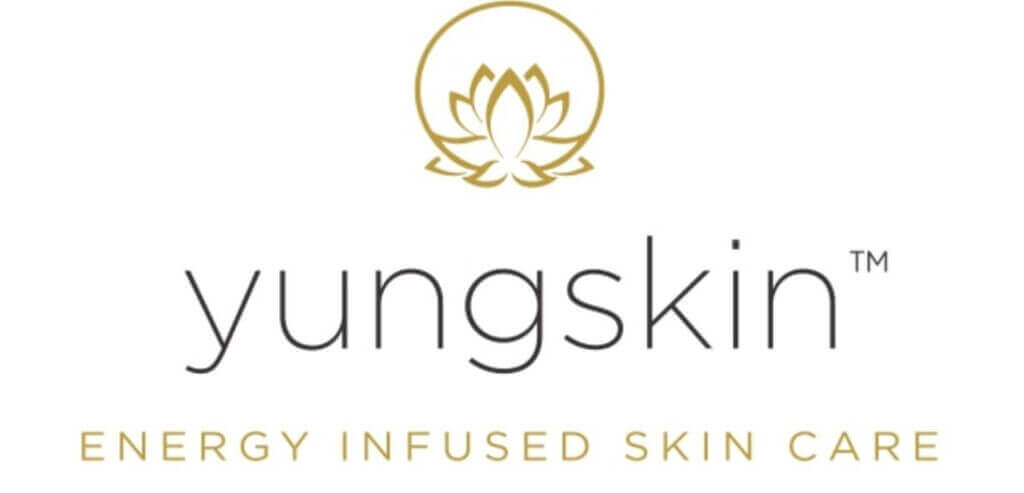
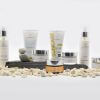
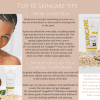
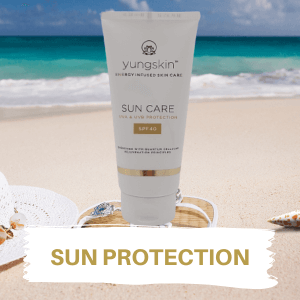
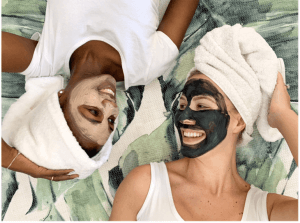
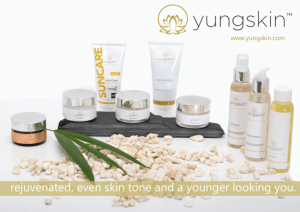


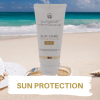
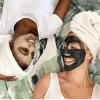
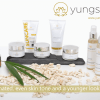

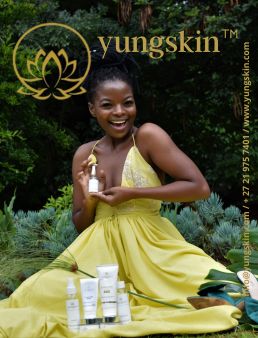




Add comment
You must be logged in to post a comment.